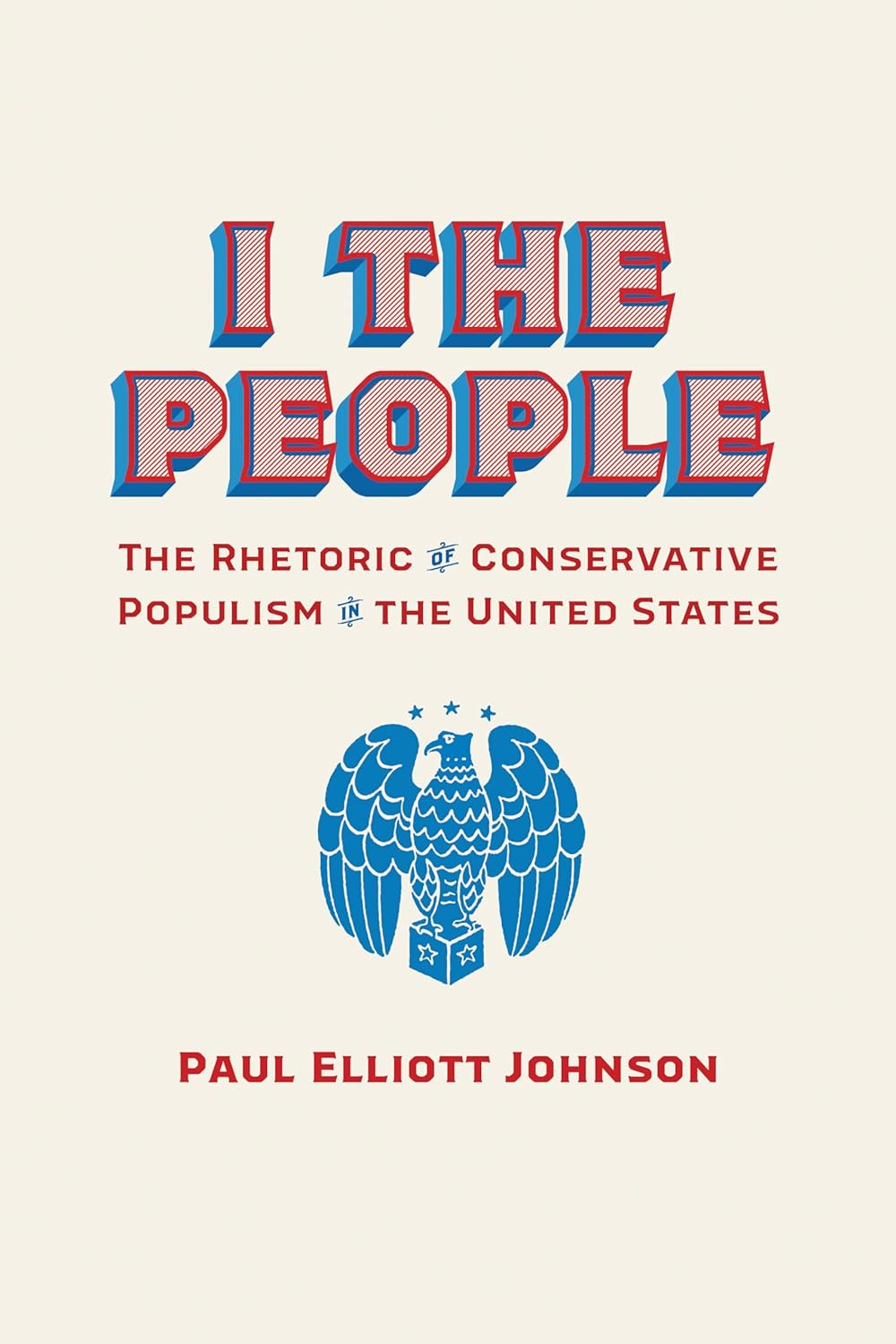The rhetorical stylings of conservative populism is the topic of I the People, an excellent new book by Paul Elliott Johnson which argues that “conservative populism works … as ideology, style and logic” to impose
“limitations on the liberal democratic order’s progressive potential. As an ideology it presumes a ‘people’ and an elite. It opposes the ‘people’ to a system defined in multicultural, bureaucratic and institutionalist terms. In terms of its style it often, but not always, follow[s] the shared rhetorical and political templates of populist rhetoric. Perhaps the most powerful function of conservative populism is its operation at the level of political logic. Conservative populism antagonizes shared political and social institutions by curating the notion that the population is defined by its philosophical differences from sources of authority external to ‘the people’ and also that both ‘the people’ and the self are entities with fixed identities and bodily parameters.”
In other words, the conservative “people” are placed in opposition to a system which is rigged against their values and interests. This might seem to have an emancipatory quality, and, of course, there are progressive kinds of populism. But for the conservative populist, the “people” are only ever those deemed worthy of membership, and the system is to be reformed in their interests—not necessarily in the interest of anyone else.
Johnson, a Professor in the Department of Communication at the University of Pittsburgh, was prompted to write I the People for reasons many of us who write about the Right can empathize with. While the book covers a lot of American history from the mid-20th century onwards, the Introduction opens with the passage of the Affordable Care Act in 2010 and the fits that erupted thereafter. Many of us regard Obamacare as (at best) a partial fix that doesn’t even put American healthcare on par with the public systems of other developed states. But for many conservatives, Obamacare constituted a fundamental threat to the American way of life. Fox News ordered a continuous stream of enraged talking heads on television to denounce it. References to F.A. Hayek’s The Road to Serfdom were more ubiquitous than Beyoncé. And above all, the “Tea Party” began as a populist uprising against the administration and fears that progressive policies constituted a threat to flag and freedom. These forces eventually coagulated into the coalition that brought Trump into office and ultimately led to the Jan. 6 riots that hobbled American democracy. This led to many shocked commentaries about how conservatism had gone off the rails, not a few written by conservatives who felt they no longer recognized their movements.
One of Johnson’s main points in I the People is that none of these 21st century developments were in fact particularly new. As Johnson says, it’s “important to stop waxing nostalgic about conservatism’s reasonable past.” American populism has long split down several axes. While progressive populism of the sort associated with FDR and the New Deal “imperfectly marshaled the idea of inequality to legitimate state expansion and a particularly egalitarian redistribution of resources, postwar conservatism invoke[d] ‘the people’ to frame progressive politics as a threat to freedom.” Up until the mid-1970s, this would often take on an overtly racist tone. In 1957, William F. Buckley penned an infamous op-ed “Why the South Must Prevail,” in which he argued that the “White Community” in the South was “entitled to take such measures as are necessary to prevail, politically and culturally” even where whites didn’t constitute a majority. This is because “for the time being, it is the advanced race. It is not easy, and it is unpleasant, to adduce statistics evidencing the median cultural superiority of White over Negro: but it is a fact that obtrudes, one that cannot be hidden by ever-so-busy egalitarians and anthropologists.” While Buckley later walked back these views, his rhetorical invocation of a nebulous “white community” which upheld the values of “civilization” against “demagogy” applied the same rhetorical tropes as a foaming at the mouth racist George Wallace when he claimed, “our system is under attack.” The only difference is that Buckley delivered pellets of racism in his signature precious prose while Wallace didn’t have time for that.
